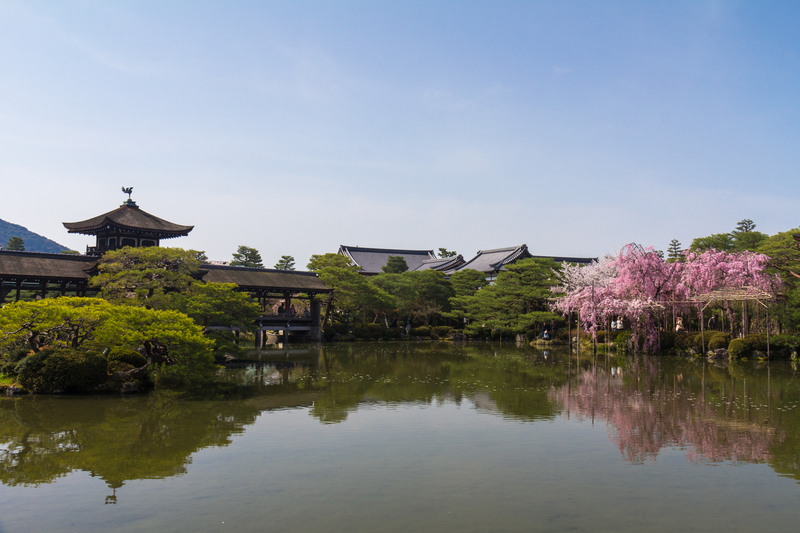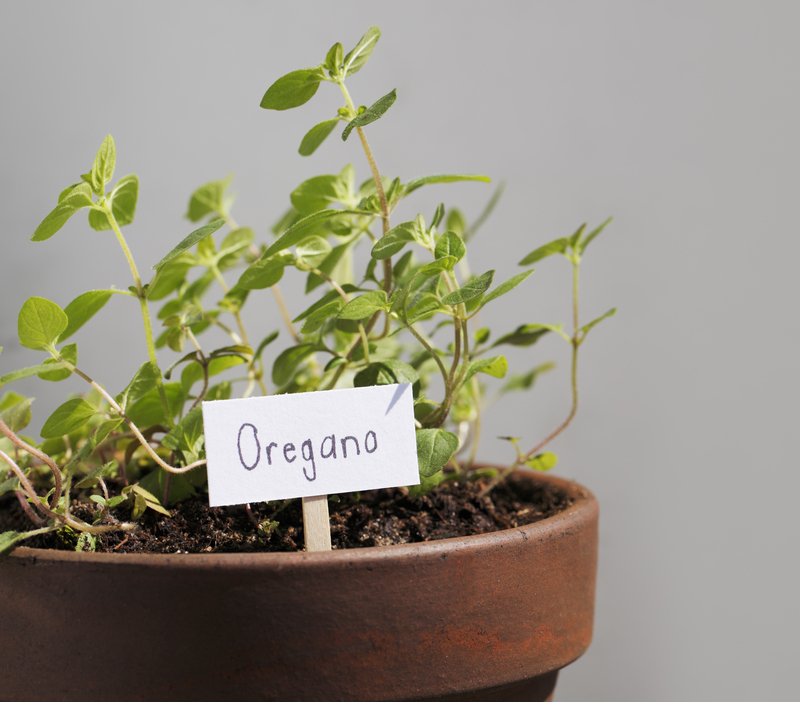Start Your Gardening Hobby: Important Tips for Starters
Posted on 07/09/2025
Start Your Gardening Hobby: Important Tips for Starters
Are you fascinated by the idea of starting your own garden but feeling overwhelmed by the thought of digging, planting, and maintaining it? Whether you have a sprawling backyard or just a small balcony, gardening can be a deeply rewarding hobby for everyone. This comprehensive guide on how to start your gardening hobby includes expert tips, step-by-step advice, and essential information to help new gardeners succeed from the very beginning.

Why You Should Start Gardening
Before we get into the nitty-gritty of beginning your gardening journey, let's consider the many benefits of gardening as a hobby:
- Physical Health: Gardening is a form of gentle exercise, helping you stay active and fit.
- Mental Health: Spending time with plants can reduce stress and boost mood.
- Fresh Produce: Grow your own fruits, herbs, and vegetables for fresh, nutritious food.
- Creativity: Gardening allows for creative expression through flowerbeds, landscaping, and plant arrangements.
- Sustainability: Planting native and pollinator-friendly plants benefits the environment and promotes biodiversity.
Ready to begin your gardening adventure? Here are the essential tips you need to succeed as a gardening enthusiast!
Understanding Your Garden Space
Assessing your available gardening space is the first step before getting your hands dirty. Ensure you consider the following:
- Sunlight: Most plants need at least 6 hours of sunlight daily. Observe your chosen area at different times to understand its sun exposure.
- Soil Quality: Healthy soil is essential for plant growth. Conduct a soil test or purchase a simple kit to check pH and nutrients.
- Water Source: Make sure you have easy access to water, as regular watering is vital for young plants.
- Space Constraints: Balcony or patio gardening? Opt for pots, vertical planters, or hanging baskets to maximize space.
Indoor vs. Outdoor Gardening
If you don't have an outdoor garden, don't worry! Indoor gardening with containers or hydroponics is a great alternative. Pick houseplants, herbs, or dwarf vegetable varieties that thrive in pots and low-light conditions.
Essential Gardening Tools for Beginners
To start your gardening hobby smoothly, gather these basic tools that every beginner gardener should have:
- Trowel: For digging small holes and planting seeds or seedlings.
- Pruners: Useful for trimming stems and harvesting herbs or flowers.
- Watering Can or Hose: Essential to keep your plants hydrated.
- Gloves: Protects your hands from thorns and dirt.
- Rake: For clearing leaves and leveling soil.
- Spade or Shovel: Necessary if you're working in beds or large containers.
Don't forget to wear a hat and sunscreen if you'll be gardening outdoors!
Choosing the Right Plants for Beginners
Picking the right starter plants is crucial for success. Some varieties are much easier to grow than others, making them perfect for newbie gardeners. Here are a few excellent choices:
- Herbs: Basil, mint, chives, and parsley are fast-growing and forgiving.
- Leafy Greens: Lettuce, spinach, and arugula thrive in cool weather and don't need much space.
- Tomatoes: Cherry or patio varieties are very rewarding and can grow in containers or raised beds.
- Radishes and Carrots: Root vegetables are fun for beginners and have short growing seasons.
- Flowers: Marigolds, zinnias, and sunflowers are easy, colorful options for novices.
Tip: Always read plant tags or seed packets for specific growing instructions regarding sunlight, watering, and planting depth.
Understanding Growing Zones
Learn your USDA Plant Hardiness Zone or your country's equivalent to choose plants that will thrive in your local climate. Your success rate will improve when selecting species that match your environment.
Basic Gardening Techniques
As a new gardener, focus on mastering the foundational gardening tasks:
- Planting: Don't overcrowd - give each plant enough space to grow.
- Watering: Over-watering is a common mistake. Water deeply but less frequently to encourage strong root development.
- Weeding: Remove weeds as soon as you spot them to prevent competition for nutrients.
- Mulching: Adding a layer of mulch helps retain soil moisture, suppress weeds, and regulate temperature.
- Fertilizing: Use organic compost or balanced fertilizers for healthier plants.
Seed Starting and Transplanting
Starting seeds indoors can give you a head start, especially in cool climates. Use seed trays or recycled containers with drainage. Once seedlings develop a few true leaves, they are ready for transplanting outdoors after the risk of frost has passed.
Common Mistakes New Gardeners Should Avoid
Don't let simple errors discourage you! Here are mistakes to watch out for as you start your gardening hobby:
- Planting too early or late: Always follow local planting calendars and frost dates.
- Neglecting soil health: Poor soil leads to poor results. Invest time in soil preparation.
- Ignoring plant spacing: Overcrowding causes disease and stunts growth.
- Inconsistent watering: Create a routine based on your plants' needs and the weather.
- Not labeling plants: Keep track of what you plant and where.
Dealing with Pests and Diseases
One challenge in any garden hobby involves managing potential pests and diseases. Here's how to protect your garden naturally:
- Inspect regularly: Check leaves and stems for signs of damage or discoloration.
- Attract beneficial insects: Ladybugs, lacewings, and bees help control harmful pests.
- Use organic solutions: Neem oil, insecticidal soap, or homemade garlic sprays can deter pests without harming your garden.
- Practice crop rotation: Growing different plant families each year reduces soil-borne diseases.
- Remove infected plants: Don't compost diseased material, as it can spread pathogens.
Maintaining Your Garden for Long-Term Success
Maintaining your beginner garden is the secret to turning a fleeting interest into a lifelong passion. Here are the top habits of successful hobby gardeners:
- Keep a garden journal: Record what you plant, weather patterns, and results. It helps plan future seasons.
- Harvest promptly: Picking vegetables and fruits regularly encourages more production.
- Prune regularly: Trim dead or damaged branches to keep plants healthy.
- Rotate crops: Plant different crops in the same spot each year to prevent soil depletion.
- Stay curious: Read, watch videos, and join online gardening forums to expand your knowledge.
Gardening in Small Spaces: Tips for Apartment Dwellers
Even if you lack a traditional yard, you can start a productive and beautiful garden on terraces, windowsills, or small patios. Here's how:
- Choose compact varieties: Look for dwarf or bush-type vegetables and flowers.
- Use vertical gardening: Hanging baskets, wall planters, and trellises save space and look stunning.
- Grow herbs on your windowsill: Most culinary herbs require minimal room and direct sunlight.
- Repurpose containers: Old buckets, jars, or wooden crates can become plant pots with drainage holes.
- Install a self-watering system: Container soil dries out quickly; consider self-watering pots for convenience.
Seasonal Gardening Tips for Beginners
Understanding the seasonal cycles of gardening is key to maximizing your results:
- Spring: Time to sow seeds and transplant seedlings. Fertilize beds and prune perennials.
- Summer: Focus on watering, harvesting, and pest control.
- Autumn/Fall: Plant bulbs and cool-loving crops, clean up perennial beds, and compost garden waste.
- Winter: Plan next season, read gardening books, and tidy tools for the next cycle.
Popular Gardening Hobby Ideas for Inspiration
If you want to make your journey unique, explore various gardening styles and projects such as:
- Vegetable gardening: Start a salad or salsa garden with tomatoes, lettuce, and herbs.
- Flower gardening: Grow vibrant annuals or perennials for color and pollinators.
- Herb gardening: Perfect for cooks and easy to maintain indoors.
- Succulent and cactus displays: Ideal for low maintenance and modern aesthetics.
- Container or patio gardening: Great for renters or apartment dwellers with limited space.
Joining the Gardener's Community
Starting your gardening hobby is much easier and more fun when you connect with others:
- Join local gardening clubs: Access resources and swap advice with experienced gardeners.
- Attend workshops: Many nurseries offer beginner classes or seasonal demonstrations.
- Follow gardening forums and social media groups: Share successes, troubleshoot problems, and gather inspiration.

Gardening Hobby FAQs for Beginners
How much time does gardening take?
Start small; as little as 15-30 minutes a few days a week is enough to maintain a small garden or a few pots. As your confidence grows, expand your efforts.
When is the best time to start gardening?
The ideal time is spring, but you can start with indoor plants or container gardening year-round. Seed starting indoors is a great winter activity.
Do I need expensive tools or equipment?
No. You can begin with basic tools and secondhand containers. Focus on essentials and build your supplies as your passion grows.
Can children participate in gardening?
Absolutely! Gardening is a fantastic educational and bonding experience for kids, teaching them about nature and responsibility.
Final Thoughts: Embrace Your Gardening Journey
Starting your gardening hobby is a delightful and fulfilling experience regardless of your age or available space. Remember, every expert gardener began as a beginner. Embrace the learning curve, celebrate small victories, and don't be afraid of mistakes--they're the best teachers!
If you follow these important gardening tips for beginners, you'll soon discover the joys of watching tiny seeds turn into lush plants and bountiful harvests. Good luck and happy gardening!
Latest Posts
Empower your garden to contribute to climate change solutions
A closer look at the joys of container gardening
Unearthing the Joy of Raising a Herb Garden

